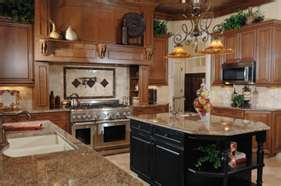Make Your HVAC System More Efficient
The heating, ventilation and cooling (HVAC) system in your house represents the biggest chunk – up to 44% – of your utility bill. In addition, HVAC-related carbon dioxide emissions amount to 150 million tons a year. So if you want to reduce your carbon footprint and decrease your energy costs, the HVAC system is a great place to start. By implementing energy-efficient HVAC practices and replacing your system with a more efficient one, you can reduce your energy costs by 20 to 50%.
Maintenance: If you have a forced air system, be sure to change your air filter regularly, particularly during times of high usage. Dirty filters force your system to work harder and that wastes energy. Also, be sure to get a yearly tune up of your system to keep it running right and maintain its energy efficiency.
Programmable Thermostat: Programmable thermostats allow you to set the system to automatically turn up or down when you need it. You can program it to reduce the heat during the night when everyone is asleep or in the middle of the day when the house is unoccupied. Since you don’t have to rely on your memory to make these switches, you can save quite a bit of money. Plus there’s a big increase in comfort since you can program the heat to kick in half an hour before everyone wakes up or arrives home in the evening.
Ducts: The ducts that move the air through your house can be a big source of wasted energy, as much as 20 to 40% of the energy your system generates. Be sure to seal them with foil backed tape to prevent any air leaks. In areas where you can access the ducts, such as attics and basements, you can also insulate the ducts to prevent heat loss.
Buy Energy Efficient Replacements: If your HVAC system is relatively new, you may be able to retrofit it to make it more efficient. However, any system that is more than 15 years old is probably inefficient and you will save energy if you replace it. Be sure to buy an Energy Star labeled system so you know that it meets the government’s standards for efficient energy usage.
How to Select a Replacement: Furnaces are rated according to their AFUE (annual fuel utilization efficiency), so look for one with a rating of 90 percent or greater, but be sure to weigh the cost against the additional energy savings. In some climates, it may take a long time for a highly efficient HVAC unit to pay for itself through lower energy bills. Air conditioners are rated by their seasonal energy efficiency ratio (SEER), which usually ranges from 13 to 23. The higher the SEER rating, the more efficient it is. In order to optimize your energy savings, be sure that the HVAC unit you install is the right size for your house. Natural gas is the most energy efficient fuel source.




